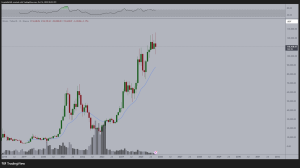Binance believes the future of crypto needs to be user-focused. Amidst mounting regulations, the CZ-led cryptocurrency exchange has published a list of what it considers to be the basic rights for every digital asset user.
Beyond the hype of Bitcoin (BTC) and Dogecoin (DOGE), Binance stated that there is more to the cryptocurrency sector. Its constitution-like document “10 Fundamental Rights for Crypto Users” emphasizes the need for financial inclusion, privacy, among others.
Binance’s New Crypto Manifesto
The leading crypto exchange, Binance, has been at the receiving end of regulatory scrutiny from various financial regulators. Especially in a time of booming crypto market amidst regulatory ambiguity, the company believes the latest document can serve as a guiding hand in such discussions and developments across the world.
https://t.co/5e9UadCWb8 https://t.co/DZvN3GQbdz
— Binance (@binance) November 16, 2021
It stated that every human being should have access to financial tools that enable greater economic independence, including cryptocurrency.
While describing privacy as a basic human right, Binance also touched upon the subject of personally identifiable information. PII is essentially any information that could potentially be used to identify a particular person. According to Binance, data such as these should be subject to strict levels of protection.
Binance CEO CZ was quoted saying,
“At Binance, our priority has always been the everyday user, from their security to their experience as part of a greater community. That’s what crypto is all about, and it’s important that we don’t lose sight of that as an industry. With these 10 basic rights, we hope to provide a voice to those who have traditionally been muted by high finance.”
Crypto Regulation is Inevitable
Binance also acknowledged that regulation in the space is inevitable, and users should have a say on how it is formed. It also said that industry players have a responsibility to work with watchdogs and policymakers to help them in shaping sound regulation that does not hinder innovation and protect the users.
While stating that regulation and innovation are not mutually exclusive, the document also spoke about the rights of users to engage in new technologies and verticals such as stablecoin, NFTs, yield farming, staking, etc.
Binance has received regulatory backlash from UK’s FCA, the EU, as well as from jurisdictions of Thailand, Japan, Ontario, the Cayman Islands, and Singapore. However, the exchange maintains that it is keen on working with watchdogs and policymakers to bring global regulatory frameworks that ensure a “healthy trajectory” ahead for the entire crypto industry.





















